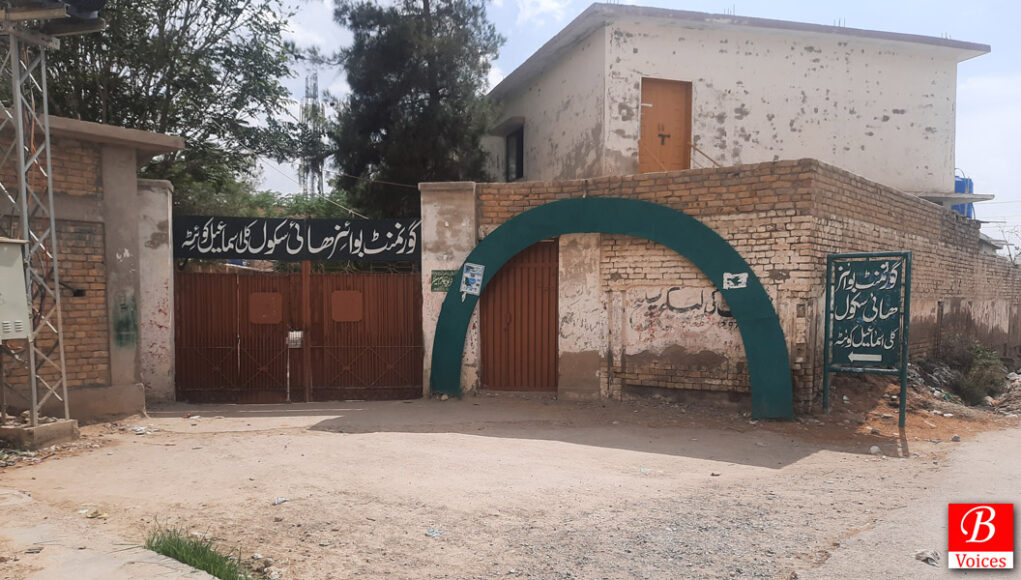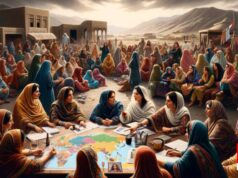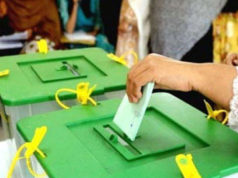Ali Baloch
QUETTA: Ensuring the provision of free and compulsory education to all children of age five to sixteen years along with all needed facilities, without any discrimination of any sort, is the obligation of the State under article 25-A of the Constitution of the Islamic Republic of Pakistan.
However, educational facilities aside, minorities in this province lack teachers for Ethics subject and it is learned by the Balochistan Voices that they are taught Islamiat instead. Whereas due to a lack of teachers, textbooks, and fear of being dropped out, the minority children silently opt for Islamiat.
Talking to Balochistan Voices, Mr. Kumar, a teacher from one of the minority groups, said that he himself had to opt for Islamiat during his student life due to several reasons, adding that he, however, had hidden this fact from his parents.
Being a teacher himself now, he has a lot to share as to why there are no teachers to teach Ethics in schools of Balochistan.
“Neither the Balochistan Book Board has a book of Ethics nor has it prepared one yet,” he says, adding, “If students from minority groups, including Hindus, are lucky enough to have a class on Ethics by chance, they have to buy the book of Sindh Text Book Board. But unfortunately, it happens hardly as most of the students have to go for Islamiat in their schools because it is the only option they are left with.”
“When I was a student in Khuzdar district of Balochistan like other few minority students, I too went on to study Islamiat. That is the only viable option left with us. And I hid it from my parents because of their fear that it may lead me to convert to Islam after studying Islmait,” he recalls.
“I was passionate about completing my education because I was least interested in the family business and I did not want to remain uneducated,” he added.
Gul Mohammad, an official from Education Department, tells Balochistan Voices that there is no budget to compile and publish books on behalf of the Balochistan Text Book Board which is why the minority students have to rely on the book of Ethics published by the Sindh Text Book Board.
In response to a query, he pointed out that in case of less number of students sometimes the minority students go for Islamiat as arranging teachers for a few students is not possible due to paucity of human resources.
Santosh* is a student in Quetta at a state run-school. He has also been attending the class of Islamiat in his 9th class instead of Ethics. Citing the same reasons, he says that he has to attend the class and his parents are well aware of it.
Being educated, his parents know that there are only so-called classes on Ethics as teachers do not teach the subject and tell students to read the book on their own if they want to pass the paper.
“This is why I attend the Islamiat class with my class fellows—the Muslim students,” Santosh says, talking to Balochistan Voices. “My teacher quotes my example in front of the whole class that I am better than my Muslim class fellows at Islmiat subject despite being a minority student.”
Parents of religious minorities assert that their children should be taught and should be able to study their own religion, instead of Islamiat or even Ethics. Most of them say that they fear for their children that they may not convert.
“It is an open secret that religious minorities have such fears,” says activist Nissa Advocate, adding that like Muslims, religious minorities are to be taught in their religions.
In 2014, the then Chief Justice of the Supreme Court of Pakistan Tassaduq Hussain Jillani gave his landmark judgment concerning security and discrimination on the basis of religion and religious beliefs. The judgment covered a wide range of issues related to minorities in Pakistan. Two important judgments were ensuring the quota of minorities in jobs and establishing a special police task force to ensure security with respect to minorities. Apart from these judgments, the CJP directed the federal and provincial governments to ensure that minorities are not discriminated against on the basis of religious beliefs.
In the light of former Chief Justice Jailani’s judgment, parents from religious minorities and Mr. Kumar and Santosh assert that there should be no discrimination in the schools, following the judgment. “Instead of Islamiat, we should be taught in our religions,” says Santosh, adding but unfortunately, they continue to face discrimination. He says that many times people ask inquire of him as to why he doesn’t convert to Islam after having knowledge of Islam through Islamiat. He says that he faces this question frequently at his school.
Published in 2011, ‘Connecting the Dots: Education and Religious Discrimination in Pakistan; A Study of Public Schools and Madrassas’ was jointly compiled by Azhar Hussain (ICRD) and Ahmad Salim with Arif Naveed (SDPI).
They write: “While non-Muslims are technically allowed to study alternatives to Islamic Studies courses after third grade, including an Ethics Course (though it is not guaranteed that such courses or textbooks and teachers to teach them will be available), the curriculum and textbooks for Grades 1-3 often integrate Urdu, Social Studies, and Islamic Studies into one integrated textbook. A careful examination of the first-grade textbook used for the integrated curriculum, titled Meri Kitab or “My Book,” which is compulsory for students, that seven of the 16 total chapters contained Islamic sermons.”
According to them, the portrayal of religious minorities in textbooks is generally either derogatory or omitted entirely.
It is stated in the said paper, “Religious minorities are often portrayed as inferior or second-class citizens who have been granted limited rights and privileges by generous Pakistani Muslims, for which they should be grateful, and to whom religious minorities should be subservient. The contributions of religious minorities towards the formation, development, and protection of Pakistan are largely absent.”
Share your comments!








